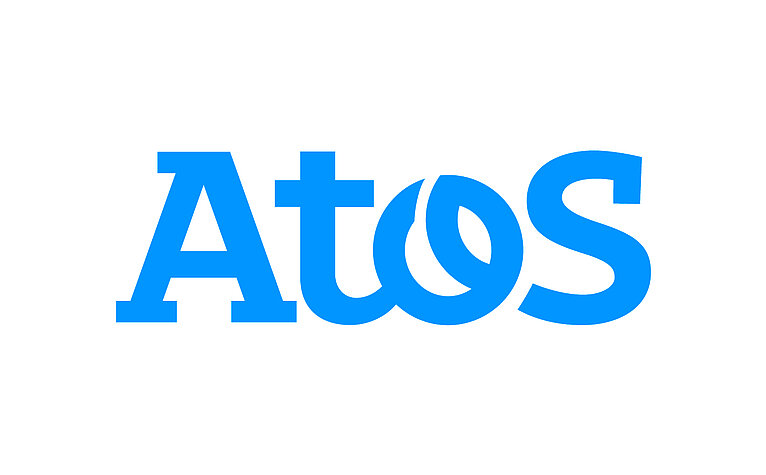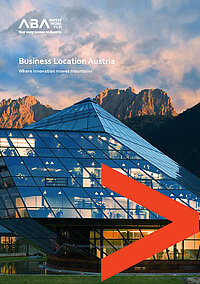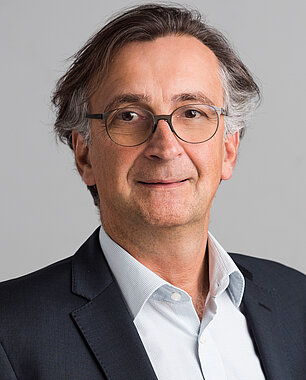 © Atos
© Atos
Vienna is being upgraded by Atos to a headquarters location. The new corporate headquarters offers space for 1,000 employees, many of whom are skilled international specialists. One of the main arguments underlying the choice of Vienna was the quality of life in the Austrian capital city. Solutions for the aviation industry as well as offshore wind farms are developed in Austria.
Questions for Johann Martin Schachner, CEO of Atos Austria
In March 2022 you once again invested in a new headquarters in Vienna. You dealt with the needs of employees and their demands on a new working world at an early stage and initiated this process at a time when the “new way of work” was more a buzzword than reality. Now the Austrian subsidiary is the first one within the Atos Group to implement this concept. Does this mean Atos is making a clear commitment to Austria as a business and work location?
Definitely. We will invest about € 7 million in the new headquarters and hire more than 250 new employees - ranging from apprentices to experienced senior experts - in the years 2022 and 2023 alone. The company has a strong foothold in all of Austria’s federal provinces and can support our customers with all the strength of a globally operating company.
What were the decisive factors underlying your selection of the new business location?
On balance, we evaluated the potential sites on the basis of about 100 different criteria, for example public transport connections, ecological requirements placed upon the building, availability of childcare facilities, number of charging stations for electric-powered bikes and automobiles as well as the practicability of the spatial concept which is oriented towards a high level of collaboration.
The new corporate headquarters of Atos in Austria features an area of 5,100 m² and space for 1,000 employees who will benefit from an innovative working environment they designed themselves. What do you specifically offer people in order to attract the best talents to your team? What will the workplace of the future look like?
What motivates our talents is the opportunity to actively participate in the digitalisation of Austria and in global projects. They see a genuine purpose to their work and tangible benefits for society and the economy. Whether we are talking about public services for citizens, satellite testing, renewable electricity generation or Industry 4.0, our solutions create jobs, and we contribute to the competitiveness of Austrian companies as well as the country’s digital future.
What demands do the best minds place on the working environment? Does this end up changing the significance of the work-life balance?
The demands actually vary considerably. This is because our team consists of employees of different ages and backgrounds. As a result, they have different requirements when it comes to their workplaces. For this reason, it is important to be flexible as a company and not only offer a rigid working time model. That is why we offer a hybrid model. For example, our employees can choose whether they come to the office or work from home and for which purpose.
Is Austria a good location to retain skilled international employees?
Yes, absolutely. In addition to stability and legal certainty, Austria offers an extremely high quality of life, which is something that cannot be taken for granted everywhere, even within the EU. Austria’s central geographical location, also as a business hub for the CEE region, is also a crucial locational advantage. This is certainly one reason why many international companies leverage Austria as their primary Central and Eastern European business location.
With respect to data services, how important is it to be independent from the USA and what does the Austrian business location offer in this regard?
Naturally, many digital services are offered by American companies. However, the advantage of the Austrian business location is being able to ensure compliance with local and European standards such as the General Data Protection Regulation. We have been given the Ö-Cloud quality seal, amongst other certifications. In turn, this creates trust, a measure of security and transparency, also because all data on 135 quality controls can be completely viewed online.
What role does Atos Austria play within the Group when it comes to the development of new products? How would you assess the quality of the collaboration between the business and scientific communities in Austria, also in comparison to other countries?
To give one example, our employees are focusing on solutions for European space travel and for offshore wind farms across the globe. Furthermore, they are involved in many international projects, such as an SAP rollout in Brazil implemented completely remotely during the coronavirus pandemic. We successfully collaborate with a broad range of research institutions and universities in Austria such as the Vienna University of Technology, the University of Applied Sciences Technikum Wien and the University of Klagenfurt.
On balance, which conditions prevailing in the Austrian business location would you say are particularly crucial to the success of Atos at its Austrian facility?
In addition to the high level of stability and legal certainty which I previously mentioned, Austrian regulations also increasingly enable us to offer flexible working models to our employees. However, the education of IT specialists needs to be improved. High-quality apprenticeships and courses of study are offered, but there are still too few graduates to satisfy demand.
Let us take a look at the issue of funding, more specifically the research premium. To what extent has this impacted the decisions made by Atos to invest in Austria?
As a matter of fact, it does actually have a major impact on our investment decisions. Many projects would not have been implemented at all without it. Moreover, the funding programmes enable highly qualified Austrian professionals to work on such projects and to also ensure that they are carried out in Austria and not elsewhere. This is yet another aspect which makes Austria an attractive business location.
From your point of view, how has the Austrian business location changed over the years? What has improved and what do you think was better in the past?
In recent years Austria has made massive progress in digitalising the public sector and the economy. This already took place before the pandemic. The fundamental awareness of the advantages and benefits of digitalisation has been deepened on a sustainable basis. And now people no longer want to do without offerings such as mobile parking, electronic prescriptions, e-ticketing and online shopping - and rightfully so. Furthermore, I would like to mention another positive development, namely that flexible working time models are becoming increasingly commonplace in companies. In turn, this helps lure skilled workers.
Were there any particularly formative or significant events, turning points or personal experiences in the corporate history of the Austrian facility which you vividly remember?
One formative turning point certainly took place over the last two to three years. Following extensive employee survey on our values, we came to the conclusion in 2019 that we have to introduce a new way of working in order to meet the needs of our staff and the demands imposed by a future-oriented working environment. We took advantage of the first lockdown to re-evaluate our wishes and values. During this time, I also celebrated my 50th birthday. Starting at this age, the question naturally arises as to the meaning of one’s own actions, and one begins to more closely scrutinize so many things. Personally, it has become more important to me than ever before to make a meaningful contribution to society. As CEO of a large company, I am not only in a position to do this, but I have the responsibility to ensure that this happens.
Could you briefly outline the most important milestones with respect to the company’s business operations in Austria?
Various acquisitions, including the security expert SEC last year, rank among the most important milestones in the company’s history in Austria. We have also been able to significantly expand our customer base. In the meantime, we serve one hundred companies from just about every sector. As a result, we have come close to doubling our annual revenue over the last five years. At the same time, we are proud to have had several customers in our portfolio, for example Verbund AG, for more than 25 years.
At present we are working on a strategic realignment of the Atos Group, focusing on our core areas of data, applications and infrastructure.
Do you have any wishes with respect to the Austrian business location or Austrian Business Agency?
It is important for Austria to proactively take steps to counteract the shortage of IT specialists, whether this involves easier access to the Austrian labour market for talents from third countries or by increasing the number of apprenticeships and study places. I also call for legislation expanding possibilities for flexible working time models.
And finally, one last question: what do you personally value the most about Austria?
I personally value the mix of tradition and innovation. Austria boasts a large number of long-established but globally successfully companies who press ahead with innovations “Made in Austria.” The country also has a lively startup scene. Last year 2,480 inventions were registered with the Austrian Patent Office. 11,031 patents from Austrian inventors were registered across the globe. This is an impressive feat and shows the high quality of the Austrian business location.
Atos IT Solutions and Services GmbH
Atos, a French IT company with more than 100,000 employees across the globe, has been represented in Austria for close to 30 years. Atos is the European market leader for cybersecurity as well as cloud and high-performance computing.
More Success Stories
ABA Help Desk
Let's talk

Top Download Invest

- Top infrastructure & central location
- Stable framework conditions
- Supportive environment for innovation

